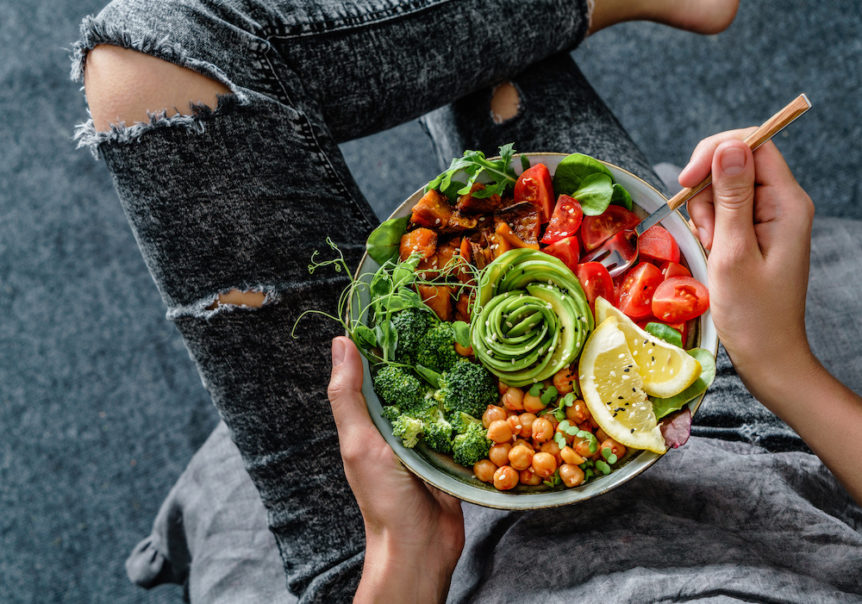
Not Milk?
by Lisa Shettle, MS, RDN, CD-N
What happens to your bone health if you are dairy-free?
Many nutrient-packed fruits and vegetables combined with weight-bearing exercise can help build and maintain strong bones and decrease the risk of osteoporosis. Our highest rate of building bone happens in our youth peaking by age 18 for females and age 20 for males.
What nutrients build healthy bones?
Many nutrients work together to provide the framework for healthy bones. Calcium lies at the forefront, but vitamin C, vitamin D, vitamin K, magnesium, and potassium also are important. The good news is that a balanced diet provides adequate nutrients for most people—without the need for expensive supplementation.
6 key nutrients from non-dairy food sources:
Calcium
Calcium helps to build and protect bones. Leafy green vegetables, like cooked broccoli, brussels sprouts, kale, and collard greens are excellent sources and offer high absorption rates. Calcium is also found in beans, chickpeas, calcium-set tofu, and fortified plant milks.
Magnesium
Magnesium is needed to convert the inactive form of Vitamin D to the active form. Eating a whole food diet with minimal processed foods can ensure adequate magnesium intake. Sources of magnesium: green leafy vegetables, legumes, nuts, seeds, avocado, beans, oats, peanut butter, whole grains, and some fortified foods.
Vitamin D
Vitamin D helps the body absorb calcium. About 10-30 minutes of direct sunlight allows us to create vitamin D, yet most of us have low levels of this vitamin. Egg yolks, mushrooms, and salmon provide Vitamin D. Fortified cereals, grains, bread, and soy or almond milk also provide vitamin D, and vegan supplements are available.
Vitamin C
Vitamin C is essential for making collagen, the protein that binds connective tissue in bones. Sources of Vitamin C include: citrus fruits, kiwi, tomatoes, red peppers, chili peppers, broccoli, brussel sprouts, and kale
Vitamin K
Vitamin K is thought to stimulate bone formation. You can find Vitamin K in the same foods that have an abundance of calcium, like dark leafy greens (kale, turnip greens, spinach, broccoli, cabbage), beans, and soy products.
Potassium
Potassium decreases the loss of calcium and increases the rate of bone building. Sources of potassium include oranges, bananas, potatoes, and beans.
**It’s important to remember that there are many things that affect bone health, including genetics, physical activity, body weight, smoking, alcohol use, hormone levels, and medications. Bone health is not about a single nutrient or a specific food. Keeping bones strong takes a whole diet and lifestyle approach.
**Before starting any diet or taking any nutritional supplements, it’s essential that you speak to your primary care provider or a registered dietitian.
If you need an individualized plan to reach your best health outcomes, I can guide you by providing medical nutrition therapy with a personalized approach.
BONUS: Services are covered by most health insurance plans!
Follow me on Instagram @lisashettlerd
References:
Ellis Rby E. Now is the Time to Build Your Child’s Bone “Bank Account.” EatRight. https://www.eatright.org/health/wellness/preventing-illness/now-is-the-time-to-build-your-childs-bone-bank-account



